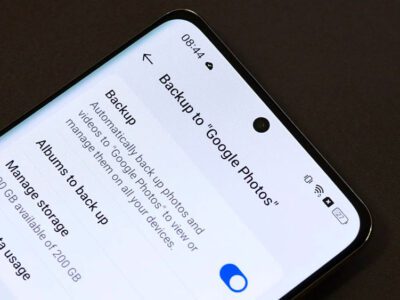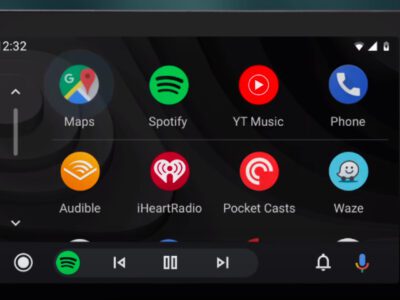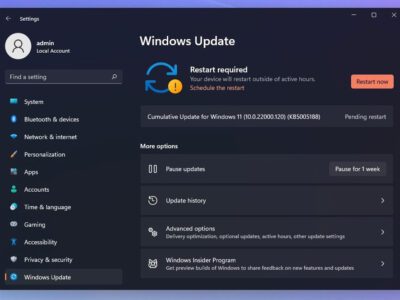
It’s not just ChatGPT on the Bing homepage. Microsoft incorporates OpenAI’s language technology into its Bing search engine.
Microsoft Bing has a major problem: Google completely outperforms it as a search engine. However, Bing has a chance to attract more attention with OpenAI’s language technology, the artificial intelligence foundation that has made the ChatGPT service a huge success.
However, for the smarter Bing to work, Microsoft must get the details right. ChatGPT can be useful, but it can also be unreliable, and no one wants a search engine they can’t rely on.
Microsoft has put considerable thought and programming resources into the challenge. It has wrestled with issues such as how AI-powered Bing displays ads, reveals its data sources, and grounds AI technology in reality so that you get reliable results rather than the digital hallucinations that can be difficult to detect in machine-generated information.
I spoke with Jordi Ribas, the leader of Bing search and AI, to learn more about the revamped Bing search engine. He’s such a fan that he used the technology to help him write a memo to his boss about it. “I probably saved two to three hours,” he said, adding that it also improved the Spanish executive’s English.
When the technology progresses beyond today’s small test group, millions of people will be able to search for much more complex information, such as whether an Ikea loveseat will fit in your car. And we’ll all be able to see whether it truly competes with Google. But for now, here are seven things I learned about Bing AI.
Bing AI is not simply a rebranded version of ChatGPT.
Microsoft combines its Bing search engine with large language model technology from OpenAI, the AI lab that created the ChatGPT tool that has sparked interest in AI and in which Microsoft has invested. Using Bing’s “chat” option, you can get ChatGPT-like results, such as “Write a short essay on the importance of Taoism.” However, for other queries, Bing and OpenAI technology are combined via Microsoft’s Prometheus orchestration system.
You can, for example, use Bing “I enjoy the music of Led Zeppelin. What other musicians should I check out?” OpenAI parses the prompt “bands similar to Led Zeppelin,” then repackages Bing search results in a bulleted list. Each suggestion, such as Fleetwood Mac, Pink Floyd, or the Rolling Stones, is accompanied by a two-sentence description.
Bing AI occasionally cites its sources.
When you give ChatGPT a prompt, it will respond with text that it generates, but it will not tell you where that text came from. The AI system is trained on massive amounts of internet data, but it’s difficult to draw a direct line between that training data and ChatGPT’s output.
However, because Bing knows the source from its web indexing, factual information is frequently annotated on Bing. For example, in response to the Led Zeppelin prompt above, Bing includes a link to a Musicaroo post, 13 Bands That Sound Like Led Zeppelin, as well as links from MusicalMum and Producer Hive.
This sourcing transparency addresses a major criticism of AI by making it easier to determine whether the response is accurate or merely an AI hallucination. However, it does not always appear. There are no sources, footnotes, or links in the Taoism essay above, for example.
Some source links are advertisements that generate revenue for Microsoft.
The elaborate answers provided by Bing AI provide a new way for Microsoft to generate revenue from advertisements. Traditional Bing searches distinguish between “organic” search results deemed most relevant by Bing and items placed by advertisers. However, using Bing AI searches, the two types of information can be combined.
For example, in response to the query “plan me a one-week trip to Iceland without a rental car,” AI-powered Bing recommends a number of destinations. Several words are highlighted in one of them: “You can visit places like Vk, Skógafoss, Seljalandsfoss, and Jökulsárlón glacier lagoon by joining a multi-day tour or taking a bus.” Hovering over that link reveals three sources of that information as well as an advertisement for a tour company. The advertisement is the first of three items and is labeled “ad.”
“When you look at those citations, some of them are advertisements,” Ribas explained. “When it’s a purchasing intent query, you can hover over it to see a list of references, and sometimes an ad. Then, occasionally, during the conversation, you’ll see product advertisements, such as if you search for a hotel.”
Ad revenue is significant because it takes weeks of work on a massive cluster of computers for OpenAI to build a single update to its language model, and OpenAI CEO Sam Altman estimates that each ChatGPT prompt costs a few cents to process. Despite being a distant second to Google in the search engine market, Bing still handles millions of queries per day.
Google intends to make its Bard AI chatbot available soon, but it will not include advertisements at first.
OpenAI-enhanced results are more relevant than standard Bing results.
The fundamental measure of a search engine’s usefulness is whether its results are relevant, and OpenAI technology significantly improves the measurement that Microsoft uses to score the relevance of its search engine results.
“In a given year, my team might move that metric by one point,” Ribas said, but OpenAI’s technology increased it by three points in one fell swoop. “It’s just never happened before in Bing’s history,” Ribas said.
Ribas clarified that the relevance boost only applies to standard search results. With its chat interface that provides more elaborate answers and a follow-up exchange, OpenAI’s technology can further improve Bing.
OpenAI improves Bing in languages other than English.
Bing has been particularly weak in non-English searches, which Ribas claims OpenAI can help with. According to Ribas, a large portion of Bing’s three-point increase in relevance scoring came from international markets.
The large language model, or LLM, developed by OpenAI is trained on text from 100 languages. “My first language is Catalan. I can communicate in Catalan. It works extremely well “Ribas stated
Bing updates the OpenAI results.
Large language models, such as OpenAI’s GPT-3.5, which serves as the foundation for ChatGPT, are slow to build and improve, which means they don’t move as quickly as the web or traditional search engines. GPT-3.5, for example, was trained in 2021, so it is unaware of Russia’s invasion of Ukraine, the effects of recent inflation on consumers, or Xi Jinping’s election to a third term as Chinese Communist Party general secretary.
Bing, on the other hand, frequently knows this more recent information. “When you bring in Bing results, you’ll get new results on that complete answer,” Ribas explained.
OpenAI’s flights of fancy are ‘ground’ by Bing.
Microsoft uses Bing data to try to avoid situations in which OpenAI’s more creative technology might mislead people. According to Ribas, the more factual a query and answer are, the more Bing’s technology is used in the answer. This “grounding” significantly reduces AI’s issues with inventing things: “It will reduce hallucination, which is… an ongoing battle,” Ribas said.
However, Microsoft does not want its grounding system to suffocate the AI’s magic. There’s a reason ChatGPT has captivated so many people. The priorities for each query are determined by the Prometheus system.
“We had to strike a balance between grounding the model and keeping it interesting,” Ribas explained. “We have a measurement for the results’ interestingness, and we have a measurement for the results’ groundedness. The more we weight the grounded, the more the query is looking for something very factual. The more creative the query, the less weight we give to the grounded. I kept telling my team that I wanted to have my cake and eat it, too.”
Views: 398

















